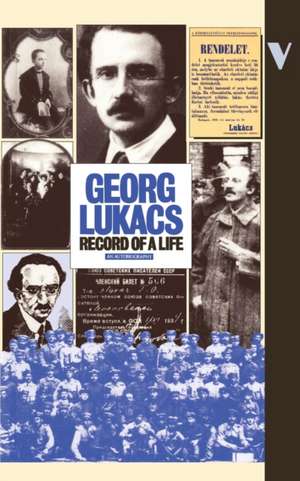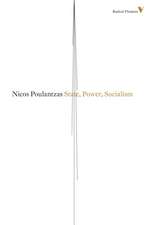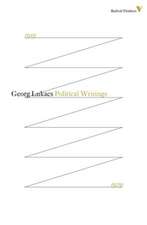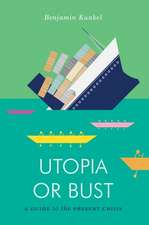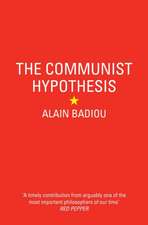Record of a Life: An Autobiographical Sketch
Autor Gyorgy Lukacs, Georg Lukacs Traducere de Rodney Livingstoneen Limba Engleză Paperback – 31 ian 1997
Stimulated by the sympathetic yet incisive questioning of the interviewer, the Hungarian essayist István Eörsi, Lukács discusses at length the course of his life, his years of political struggle, and his formation and role as a Marxist intellectual. From a highly evocative account of his childhood and school years, Lukács proceeds to discuss his political awakening; the debates within the socialist movement over the First World War form the prelude to an assessment of Tactics and Ethics, written in 1919; from there the discussion turns to Lukács’s early major contribution to Marxist philosophy, History and Class Consciousness.
After considering at length the years of emigration in Vienna and the Soviet Union, Lukács finally recalls his return to Hungary after the Second World War, and his new position as a revolutionary left critic of actually existing socialism. “By socialist democracy,” he wrote in 1970, “I understand democracy in ordinary life, as it appears in the Workers’ Soviets of 1871, 1905 and 1917, as it once existed in the socialist countries, and in which form it must be re-animated.”
This Record of a Life, which includes an introduction by István Eörsi, furnishes a compelling tribute to a remarkable man.
Preț: 136.56 lei
Nou
Puncte Express: 205
Preț estimativ în valută:
26.13€ • 27.18$ • 21.58£
26.13€ • 27.18$ • 21.58£
Carte disponibilă
Livrare economică 24 martie-07 aprilie
Preluare comenzi: 021 569.72.76
Specificații
ISBN-13: 9780860917717
ISBN-10: 0860917711
Pagini: 208
Dimensiuni: 127 x 203 x 12 mm
Greutate: 0.23 kg
Editura: VERSO
ISBN-10: 0860917711
Pagini: 208
Dimensiuni: 127 x 203 x 12 mm
Greutate: 0.23 kg
Editura: VERSO
Notă biografică
Georg Lukács (1885–1971) was a Hungarian Marxist philosopher and literary critic. Most scholars consider him to be the founder of the tradition of Western Marxism. He contributed the ideas of reification and class consciousness to Marxist philosophy and theory, and his literary criticism was influential in thinking about realism and about the novel as a literary genre. He served briefly as Hungary’s Minister of Culture following the 1956 Hungarian Revolution.
